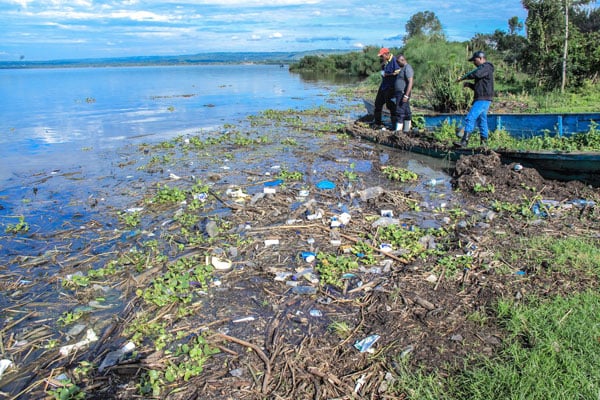Prime
Financial practices linked to environmental outlook

Juliet Katusiime Zizinga
What you need to know:
“Dealing with the financial perspective requires us to appreciate that we still largely and directly depend on the environment to nourish our financial pockets"
Environmental sustainability awareness and progress are being made; the latest of these events is the intergovernmental negotiations’ committee (INC-2) on a plastics treaty meeting in Paris (France) in May. However, our environment demands more attention with each passing day, including collective attention in the lead-up to the annual World Environment Day on June 5.
We need to deal with cases of uncoordinated loss of forests and or wetlands, unfiltered urban drainage channels choking on waste, especially plastics, soiled waters, and degraded hillsides. Our housing is subject to limited adherence to plans and standards, further disabling urban waste collection. Indeed, the environmental protection score is ‘low’ to undetectable if we dare a survey, and there are indications of a decline or stagnation in value-added to GDP from various sectors in comparison. One of the reasons for our situation is financial.
Dealing with the financial perspective requires us to appreciate that we still largely and directly depend on the environment to nourish our financial pockets as individuals, ranging from fruit sellers to farmers, and as a country, weighed by our GDP-contributing sectors. In effect, continued shortfalls in how we manage the base affects our financial health.
In this article, I not only raise our eyes to the central financial management instrument, the national budget, but also to the three interfaces of the environment and finance issues. The first interface is the general performance and the contributions of the environment to the budget; the second is the sharing of financial resources thereof; and the third relates to practices in the use of the finances.
In general, the environment both urban and rural, underwrites the entire financial budget, both directly and indirectly. However, there are also sectors and actions linked to or defined as environmental.
There are gaps in arguing the value of such sectors in terms of financial contribution when the value of a good environment includes facilitating agricultural-fishing and forestry sectors that contribute at least 23.8 percent (World Bank, 2021) and the tourism and aesthetics sector, which contributes 7.7 percent (UIA, 2023) to the country’s gross domestic product.
The latter, plus the many other values of a flourishing environment, make it paramount to interest ourselves in the budgets. This is not exclusive of overseas development finance contributions and practices, which in one way or another are products of the respective global environment.
Considering the 2022–2023 budget, 1.37 percent is the share planned for what is considered to directly result in the desired quality of the environment. A budget share that is arguably considered restrictive by duty-bearers, especially at the local government level.
Counter-arguments tend to point to the spread of environmental issues across all other sectors and programme aspirations, and as such, mainstreaming them, including financially, is a fair strategy. Fine, then, we ought to spread our environmental eyes equally across, to the effect of the financing but also the practices that accrue. We should not ignore what happens with the Parish Development Model and other initiatives, since sustained poverty is a well-established environmental management challenge.
We should not ignore the widespread financial inequalities among the population, sometimes perpetuated by the very office-bearers set to alleviate them through corruption. We should be eagle-eyed on the budget and finances set to get our agricultural sector up and running.
The reasons include agriculture, which occupies an estimated 71.9 percent of the land is also responsible for most environmental degradation. Further scrutiny of available research and opinions link the effects of a poorly-managed environment to after-security and social instability.
Thereby bloating the ‘governance and security’ budgets, which in consecutive years are top-tier expenditures. Therefore, the national budget(s) should be interrogated or understood through an environmental lens.
Of course, asking for more money for initiatives coordinating the environment is important, but equally important is ensuring wise, efficient use of the financial resources. The latter applies to both the institutional and individual levels because, as we learned, our financial practices and health link to other sections of the country’s welfare and related environmental practices.
The author, Ms Juliet Katusiime Zizinga (PhD), is an environmental sustainability researcher and advocate.




